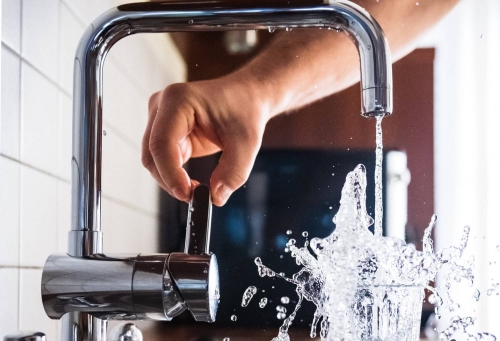Consumption of water on the rise in Bahrain
TDT | Manama
The Daily Tribune – www.newsofbahrain.com
Staff Reporter
Water consumption in Bahrain has been on the rise during the past ten years, according to official statistics available with the Ministry of Municipalities Affairs and Agriculture. The average daily water consumption in cubic meters per day has increased from 100.41 in 2006 to 166.8 in 2021.
According to experts, the annual rate in the growth of water consumption during these years was between five to seven per cent. Quite similar to other GCC nations, Bahrain experienced accelerated development growth during the nineties, leading to an increase in the economic base and an improvement in the standard of living, resulting in population rise.
Various studies say the population growth and associated development processes, represented by rapid urbanisation, expansion of irrigated agriculture and industrialisation in the last four decades, also brought about substantial increases in water demand.
Last year, the Electricity and Water Affairs Minister revealed that the Kingdom has achieved its Millennium Development Goals in saving water. He made this statement as the country’s water production volume reached 183 million gallons per day.
The Kingdom is among the 17 countries in the world facing extreme high water stress, according to a study by the World Resources Institute. Bahrain is ranked 12th in the list, which is topped by Qatar. Kuwait is ranked seven and Saudi Arabia stands at eighth position while the United Arab Emirates occupies the tenth place.
Oman is ranked sixteenth, making all countries in the region finding a place in the extremely high baseline water stress list. The study highlighted that water stress is just one dimension of water security.
“Like any challenge, its outlook depends on management. Even countries with relatively high water stress have effectively secured their water supplies through proper management. “Saudi Arabia, ranked number eight for water stress, prices water to incentivise conservation. Its new Qatrah (droplet in Arabic) programme sets water conservation targets and aims to reduce water usage 43 per cent within the next decade.
The study suggests three mechanisms to address the crisis; increase in agricultural efficiency, invest in grey and green infrastructure apart from treating, reusing and recycling water. Earlier, during an exclusive interaction with The Daily Tribune, Prof Waleed Zubari, Coordinator, Water Resources Management Programme at Arabian Gulf University, said the sea level rise will have a negative impact on water resources management in the Kingdom.
“The rise in sea levels will lead to a potential increase in seawater intrusion to groundwater resources, leading to salinization. And this will certainly have an effect on human consumption. The higher desalination costs would burden the municipal sector. As of now, the municipal water consumption is met mainly by desalinated water, which is energy intensive, and has environmental externalities.”
Highlighting the impact of global warming on the existing water resources, Prof Zubari said: “In general, it will lead to increasing water demands, over-stretching the Kingdom’s limited water resources and increasing the associated costs of water provision.
“Moreover, the increase in temperature will lead also to more water consumption by plants, and farmers might adapt with strategies such as changing planting time and using plant varieties with a longer growing season, which in turn would lead to an increase in the overall stresses on water resources in the Kingdom.”
Related Posts

